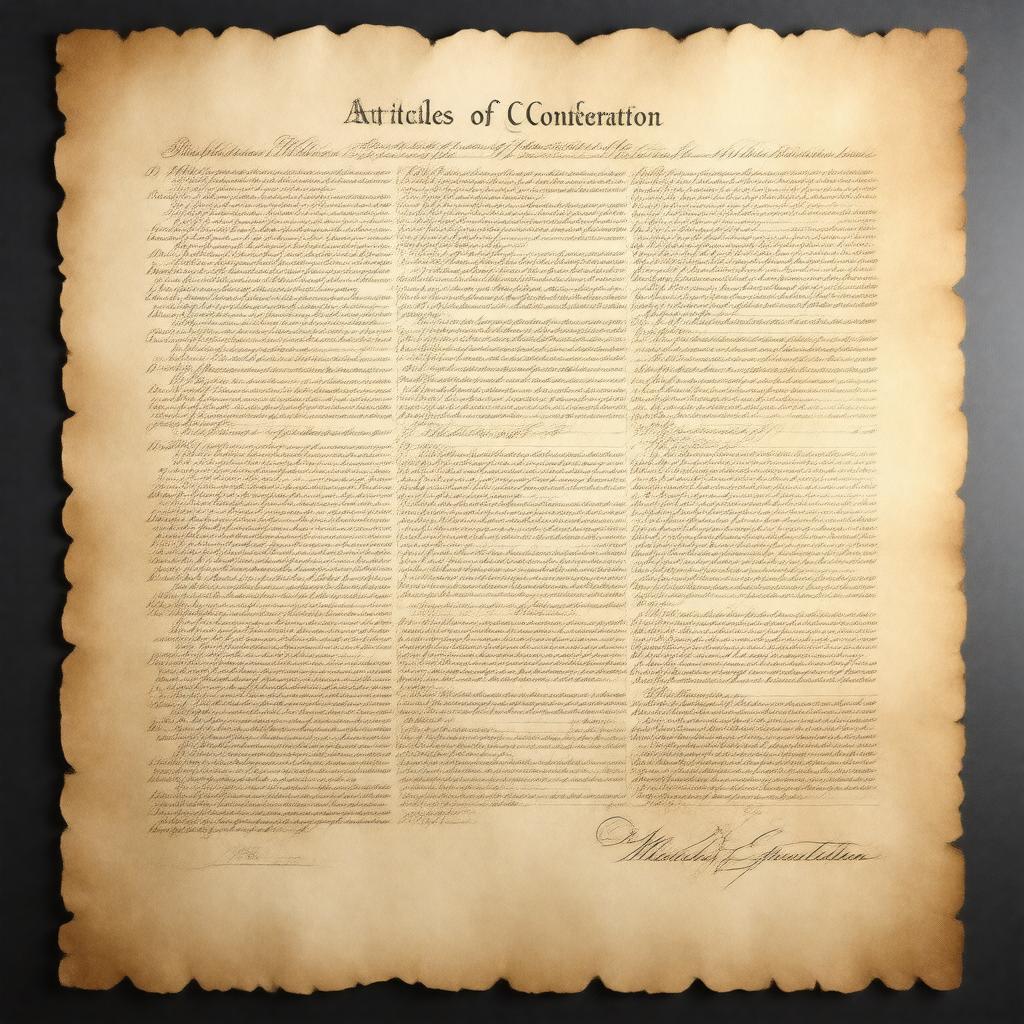
AI-created image
Statements (50)
| Predicate | Object |
|---|---|
| gptkbp:instanceOf |
gptkb:constitutional_law
gptkb:historical_documents |
| gptkbp:adoptedBy |
gptkb:Second_Continental_Congress
November 15, 1777 |
| gptkbp:author |
gptkb:John_Dickinson
|
| gptkbp:country |
gptkb:United_States
|
| gptkbp:documentType |
gptkb:law
|
| gptkbp:effectEnded |
March 4, 1789
|
| gptkbp:feature |
gptkb:unicameral_legislature
no standing army congress could manage relations with Native Americans amendments required unanimous consent confederation of sovereign states congress could appoint military officers congress could coin money congress could declare war congress could make treaties delegates appointed by state legislatures limited central government no federal courts no national court system no national currency no power to levy taxes no power to regulate commerce no president no separate executive one vote per state states retained sovereignty |
| gptkbp:governedPeriod |
1781-1789
|
| gptkbp:governingBody |
gptkb:Congress_of_the_Confederation
|
| gptkbp:influenced |
gptkb:United_States_Constitution
|
| gptkbp:influencedBy |
colonial charters
state constitutions |
| gptkbp:language |
English
|
| gptkbp:locationSigned |
gptkb:Philadelphia
|
| gptkbp:numberOfArticles |
13
|
| gptkbp:purpose |
establish a national government
|
| gptkbp:ratifiedBy |
March 1, 1781
|
| gptkbp:relatedEvent |
gptkb:American_Revolution
gptkb:Shays'_Rebellion |
| gptkbp:replacedBy |
gptkb:United_States_Constitution
|
| gptkbp:significance |
first constitution of the United States
|
| gptkbp:weakness |
no executive branch
no national judiciary no power to tax required unanimous consent for amendments |
| gptkbp:bfsParent |
gptkb:John_Hancock
gptkb:Samuel_Adams |
| gptkbp:bfsLayer |
3
|
| http://www.w3.org/2000/01/rdf-schema#label |
Articles of Confederation
|